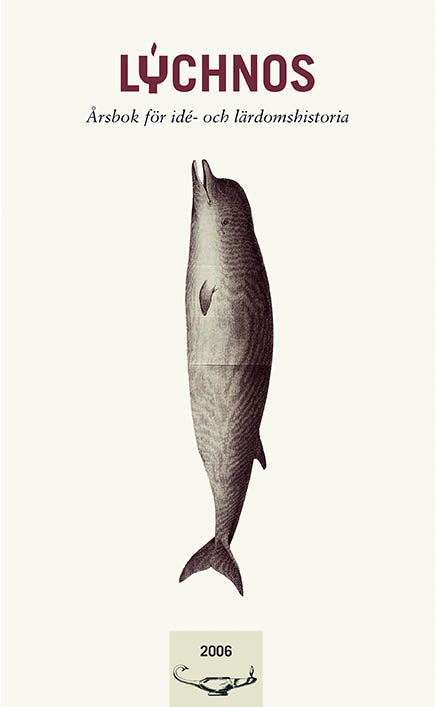Om den filosofiska filosofihistoriens idé
Abstract
The dominance of analytic philosophy in Sweden since the 1960's, with its strong focus on logic, philosophy of language and philosophy of science, and its restrictive view of what counts as scientific philosophy has not been favorable to the study of the classics of philosophy or its history in general. Echoing the Quinean idea that philosophy as a science looks forward and is to be held distinct from the history of philosophy, the latter has been seen as a concern primarily for historians of ideas and not for philosophers, unless cast in the form of rational reconstruction of the kind exemplified by Anders Wedberg's brilliant History of Philosophy (Stockholm, 1958). It has been held out as a model for a properly philosophical history of philosophy and opposed to that written by historians of ideas, which are deemed to be merely historical without philosophical relevance. But drawn in this way, the distinction is problematic and misleading. Rational reconstruction which is not historically informed runs the risk of being revisionist in granting the superiority of contemporary philosophical ideologies in vogue at the leading departments, and comes with other questionable assumptions as well. The history of philosophy, on the other hand, has a distinct agenda from the history of ideas and should not be reduced to the latter. The kind of history of philosophy defended in this paper is what Michael Frede has called philosophical history of philosophy, which is a dynamic field of research today. It combines historical methods with philosophical argument and analysis that is not anachronistic, but observant of the historically relevant internal, philosophical context. It is historically critical and philosophically informative, since it teaches us about forms of thought, argumentation, philosophical methods and practices of the past from which anyone taking a serious interest in philosophy, not only its history, still has a lot to learn.
Downloads
Publicerad
Nummer
Sektion
Licens
This work is licensed under a Creative Commons Attribution 4.0 International License. The copyright for the work published in Lychnos remains with the authors.


